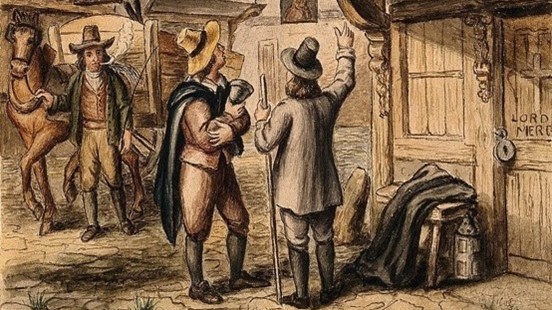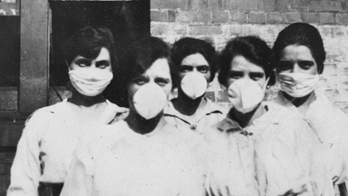How did COVID-19 affect someone beginning a PhD in economic history? With archives and campus closed, the year of lockdowns was challenging. But beyond the restricted availability of primary material, it was the loss of campus camaraderie that was most limiting. It is often said that a PhD requires long, lonely hours in the library. The true isolation of the pandemic taught PhD student Zane Jennings show being part of a vibrant community of economic historians is equally important.
In the early days of the pandemic, COVID-19 policy was abrupt, dramatic, and unpredictable. In late May 2020 my visa paperwork had arrived, but I could not get my fingerprints taken for the biometrics. The local immigration office was closed. Months passed, and it looked less and less like I would be leaving Arizona as COVID case counts, hospitalizations, and deaths soared. Then, a brief reopening in August meant I made it to London on 4 October, a week or so after the official beginning of term. I was lucky.
Upon entering England, I spent two weeks in isolation. I did not know at the time this first period of self-isolation would be preparation for 8 months of rolling lockdowns. From an American perspective, England and Europe seemed to be past the worst of the epidemic. The virus proved more elusive.
After isolation I moved into a fellow PhD student’s living room. We agreed on two weeks, but due to the November lockdown, I stayed for a month and a half. Campus was halfway open then, and I met some of my cohort. These were the most rewarding weeks of my first year. I moved out in December. Fortunately, my new room was big, and my housemates were nice: I spent the next five months working in it, socialising almost exclusively with them.
In isolation and in lockdown, my bedroom became my office, and I had to develop ways of staying focused, avoiding distractions in a space meant for leisure, not work. I developed a routine bounded by alarms: alarms to wake up, to begin work, to take a break, to attend a seminar, and when to finish. I found early that without structure, the day is either always beginning or ending, and I become unfocused.
The closure of archives pushed the work itself in a different direction too: the primary research I had been expecting – and looking forward to – was substituted for literature reviews and heavy exploitation of ‘British History Online’, a collection of digitized historical sources. For my first-year submission, I was able to submit the introductory chapter, which laid out the next four years’ research ambitions, and a literature review in lieu of a primary source-based paper.
Yet while I interacted more than I expected with the writings of economic historians, I saw much less of the real thing than I had hoped when I was accepted for the PhD. My master’s in the department taught me never to underestimate what one can absorb through time spent in the presence of intellectually rigorous and boundlessly curious academics. A year’s worth of interaction with my cohort and faculty – casual encounters, conversations over a drink, in-person seminars – vanished.
Of all the challenges, this was the most damning. It was also the most revealing. Isolated at home, those precious moments of interaction and discovery were gone. Their absence showed me campus community is as irreplaceable as it is essential for a rewarding PhD experience. I will never again claim a PhD is a lonely pursuit.



